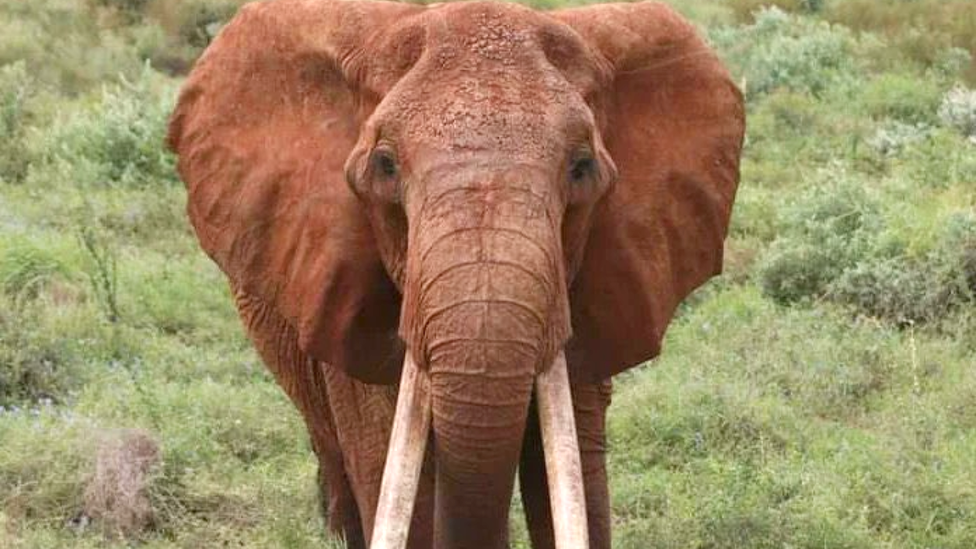Kenya's famous matriarch elephant dies
- Published

The KWS said Dida had shepherded her herd through many seasons and challenging time
A Kenyan elephant, thought to have been Africa's largest female tusker, has died of old age, wildlife officials have said.
Dida, also known as Queen of Tsavo, was aged between 60 and 65 years, the upper age limit of an elephant in the wild.
The Kenya Wildlife Service (KWS) hailed her as an "iconic matriarch" of the Tsavo East National Park.
Famed for her long tusks, Dida was a major tourist attraction at the park, the oldest in Kenya.
"She died from natural causes due to old age," the KWS said on Twitter, attaching images of the elephant walking through the park covered in soil.
Allow X content?
This article contains content provided by X. We ask for your permission before anything is loaded, as they may be using cookies and other technologies. You may want to read X’s cookie policy, external and privacy policy, external before accepting. To view this content choose ‘accept and continue’.

Dida was a "great repository of many decades worth of knowledge", and had shepherded "her herd through many seasons and challenging times", it added.
Meanwhile, two elephants have died of hunger in Imenti Forest on the slopes of Mount Kenya.
In the past year, Kenya has recorded 179 elephant deaths because of the drought affecting eastern Africa.
Conservationists say this is a setback considering the gains made over the years in tackling poaching through increased surveillance.
Following consecutive seasons of poor rains, rivers and water pans have dried up and grasslands have shrivelled up in the game reserves.
The KWS said steps were being taken to save the lives of animals - including digging boreholes and transporting water to dried up water pans and dams.
You may want to watch:
How climate change is killing Kenya's elephants